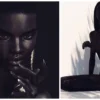Beauty
‘I Was Crowned Miss Universe Australia, But My Legitimacy Got Questioned Because Of My Brown Skin’
Maria has dedicated her career to campaigning for change and representation.
In Miss Universe’s 69-year history, Maria Thatti succeeded in becoming the third woman of color to represent Australia. But as she won, the beauty queen wasn’t what people expected, and her new platform opened her up to major discourse, both domestically and internationally. Maria is the author of the book “Unbounded,” and in it, she details her journey to stardom.
As described in Chapter 6 of her book, Maria pointed out that the discussion following her win focused on her Australianness, including taunts to deport her from the very country she was born and raised in.
The discussion also saw observations that she looked like Miss India, Miss Israel, anything BUT Australia.

Maria added: “And confusion at how the organization chose someone who didn’t like the majority of people the country was comprised of. They went on to liken my representation to ‘Kenya sending a white woman with blonde hair and blue eyes to represent them. This wasn’t just about me becoming Miss Universe Australia.”
“This was about the pervasive systems for beauty, power and success that exclude so many people of color. Truthfully, it was a scary experience.”
As a woman of color, Maria admitted she knew what it was like to have to hustle harder just to be able to knock on the door of opportunity. She insisted it felt safer to avoid knocking because she believed the door wouldn’t open, but she was done playing it safe. When she emerged as Miss Universe Australia, she was, at last, ready to follow her parents’ advice and took pride in her differences.
Instead of hiding, Maria decided not to ignore that she was a woman of color facing racism for being different from what people expected. She shone a light on it, built their criticisms into her campaign, and used it as her ‘WHY.’

The media personality continued: “I ignited conversations challenging the misrepresentation and under-representation of people of color, wrote articles championing diversity, and spearheaded campaigns on inclusivity. Because when I placed in the top 10 of the global Miss Universe competition, I proved that the things binding us to the fringes can be used as fuel to power us into the spaces they once kept us out of.”
Maria claimed she was only the third woman of color to represent Australia at the Miss Universe pageant, but she definitely won’t be the last.
And as she continues to grow, she will never forget the things that kept her grounded, including “the plastic bag that’s full of other plastic bags in mum’s kitchen. The sound of Bollywood music and the aroma of biryani when I walk into my family home. The respect I have for elders. And the pride in my hybrid cultural identity, because the middle ground can also be home.” Specifically, Maria is the daughter of Indian immigrants, one of who is an ex-Catholic priest.
The man she calls Dad was known as “Father Tony,” but not until her mother strutted into his office wearing a leather skirt and seduced him out of the priesthood.

She wrote in a part of her book: “I grew up in the bustling city of Melbourne, raised within the rich culture of my Indian heritage. But as a teenager, I couldn’t help but feel like it conflicted with the culture of the country I was born in and desperately wanted to fit into. My friends thought I was over-familiar when referring to every adult I encountered as aunty or uncle.”
“I couldn’t explain why we had that plastic bag full of other plastic bags in the kitchen. I’d struggle to lie when I had to tell my friends about the 10pm curfew my dad enforced for a party starting at 9pm.”

Maria stated that she hated the disparity between roast chicken dinners and the biryani they ate at home and that she yearned to be more white.
“I often wondered whether people assumed that brown people connected via secret network because ‘Oh, I know an Indian person!’ was often the first response when I’d answer queries about my ethnicity. But serious bullying rooted in racism meant that I always felt like I was on the fringes, so it angered me when my parents would tell me to take pride in my differences. I felt I wasn’t Indian enough to be an Indian, nor Australian enough to be Australian.
“When you compound the experience of racism with sexism and rampant queerphobia [ I came out as bisexual on national television last year], you just don’t see people like me represented in spaces that matter.”

“That lack of visibility meant that a lot of people saw me through toxic caricatures and exaggerated stereotypes for most of my life. This made being ambitious tough. So, I comprised by deciding to succeed, but conservatively.” Now, Maria is a graduate with degrees in Psychology & Management with first-class honors and was nominated for a scholarship to Harvard through a fellowship program.
She’s also involved with corporate human resources whilst also pursuing a make-up qualification to satisfy her creative itch, which has developed into full-blown hives.
On Instagram, Maria has been posting beauty content while advocating for diversity in the beautiful landscape. From there, she built a community, which made her think differently about purpose, service, and impact. Before going to contest for Miss Universe Australia, Maria had questioned the safe route, especially after seeing Priya Serrao, an Indian-Australian lawyer, win Miss Universe Australia in 2019.
With Priya as an inspiration, Maria checked on her internalized misogyny and recognized the potential of Miss Universe’s platform as a vehicle for achieving her goals.
She did it, and currently, the Melbourne-based is a passionate advocate for diversity and LGBTQIA+ rights while also addressing violence against women and children.






















